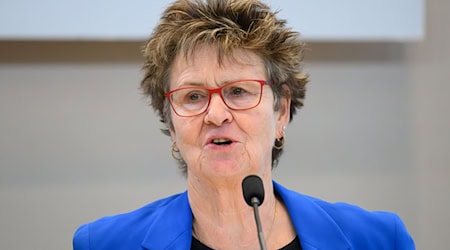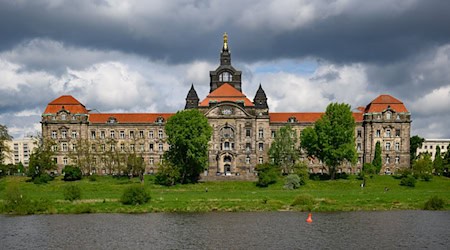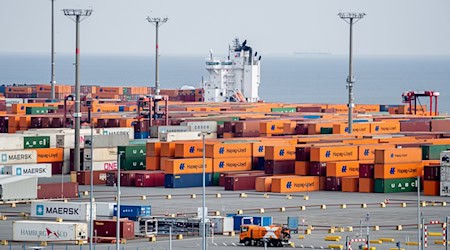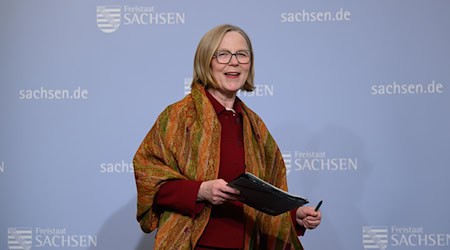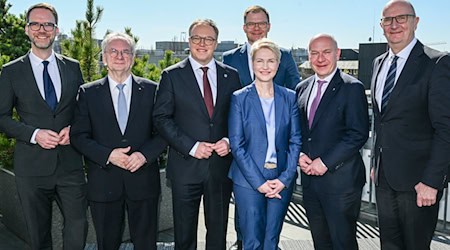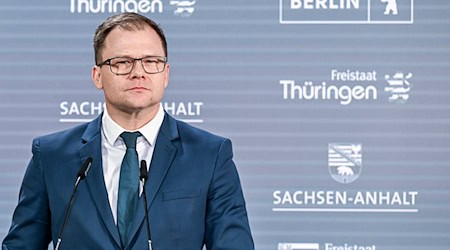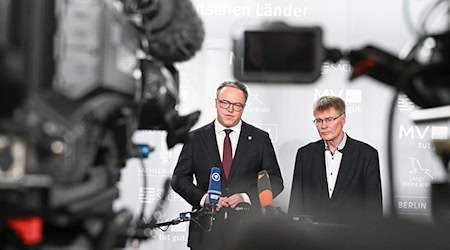The Minister Presidents of the five eastern German states and Berlin will meet for their traditional regional conference at the beginning of April. "In the 35th year of German reunification, the East German Minister Presidents' Conference continues to play a key role as a mouthpiece for the interests of eastern Germany," said Thuringia's head of government Mario Voigt (CDU). Thuringia is chairing the committee this year.
The meeting with Voigt's counterparts from Mecklenburg-Western Pomerania, Berlin, Brandenburg, Saxony and Saxony-Anhalt is scheduled for April 3 at the Thuringian State Representation in Berlin, the State Chancellery in Erfurt announced. The program includes a discussion with representatives of the East German chambers of commerce.
Catalogue of demands is on the table
In March, the East German minister presidents presented a paper with a kind of catalog of demands to the new federal government. Voigt spoke of a work assignment for the new federal government. "Our goal is to set the economic, infrastructural and social course in such a way that the East not only catches up, but leads the way," said Voigt. The current Commissioner for Eastern Germany, Carsten Schneider (SPD), will also be present on April 3.
In their paper, the eastern heads of government demand that eastern Germany should be adequately represented in the new federal government. They argue for the retention of the office of East German Envoy with cabinet rank. The CDU/CSU actually want to reduce the number of government commissioners and possibly dispense with the East German commissioner in the new government - the SPD is against this.
East Germany continues to be characterized by structural peculiarities that require a specific political response, according to the minister presidents' paper. The disadvantages of the structurally weak regions of eastern Germany in terms of business-related infrastructure and regional services of general interest must be given special consideration in the federal government's investment programs, they demand.
Copyright 2025, dpa (www.dpa.de). All rights reserved


